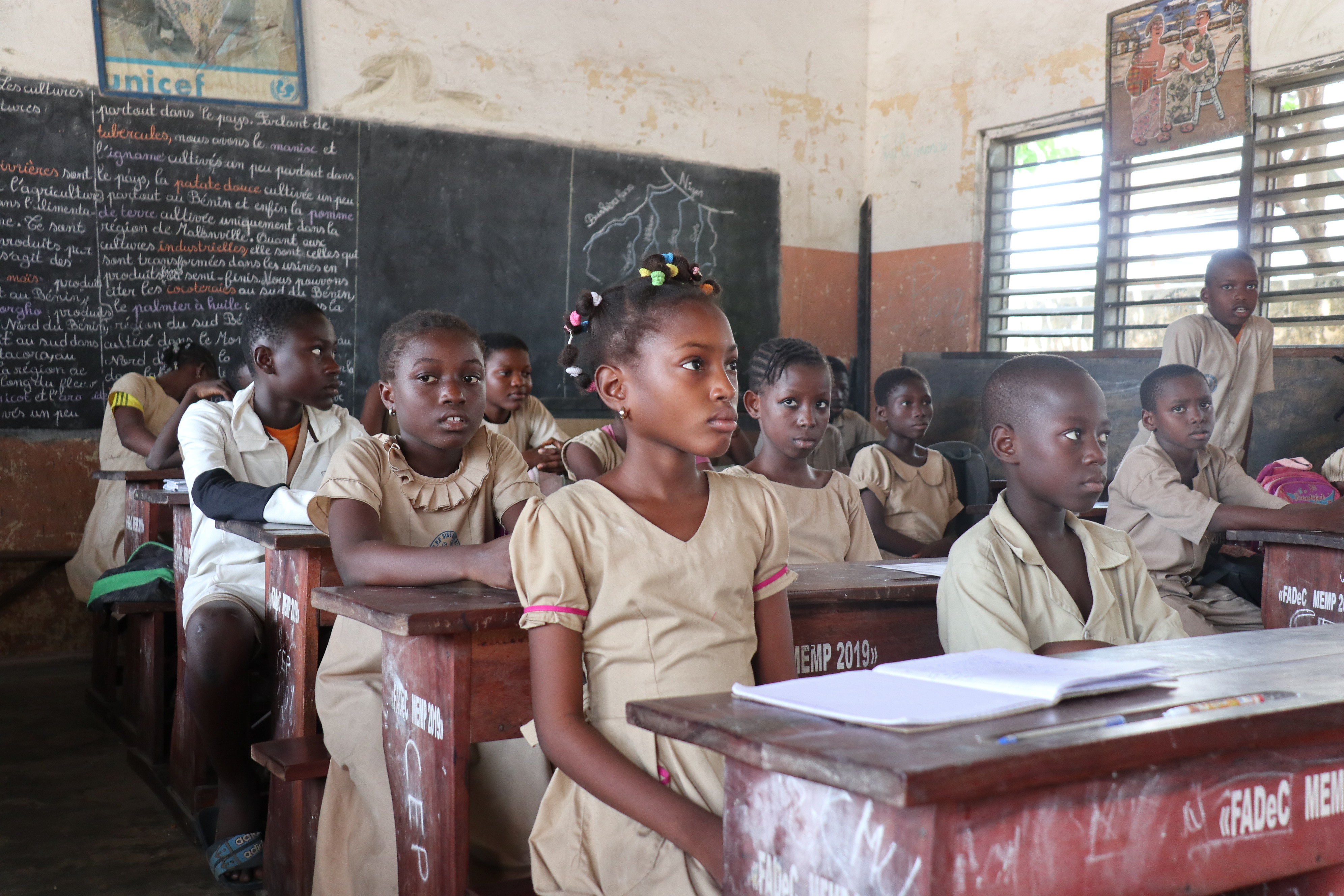There are 770 million illiterate adults in the world, 250 million 15-24 year olds without any training, diploma or qualification, and 250 million children who do not attend school. For those who do go to school, the quality of learning is not up to scratch. 2 out of 5 children, or almost 392 million children, who start school today will not be able to read or understand a simple text by the age of 10. In France, more than 100,000 children do not attend school and nearly one in three pupils in CE1 does not have a satisfactory command of word reading and 17 % of reading comprehension (PIRLS study, May 2023). In a global context of human rights violations and setbacks, the right to education is clearly not spared. Worse still, it seems to have been sacrificed: the alarming figures have been piling up for years, without any urgent reaction. Surprising, given that each additional year of education reduces the risk of violence and conflict by around 20 % (World Bank).
Education for all, that universal, absolute right enshrined in the Declaration of Human Rights and reiterated in the Convention on the Rights of the Child, Over time, and in spite of itself, education has become a relative issue, one that can be postponed at the whim of emergencies, crises and conflicts. Millennium goal, golden thread, key to sustainable development... From summit to summit, from Dakar to New York to Paris, education has been the subject of unanimous support: political leaders have pledged to make it a priority. But in the end, the promise remains empty, and the achievement of quality education accessible to all is postponed until more propitious times.
But how can we explain this failure - because that's what it has to be called - to those who are waiting, to the millions of children, young and old, left behind, forever deprived of the opportunity to learn, to build themselves up, deprived also of the power to act, to express themselves and to participate? Because yes, To be deprived of education today is to be deprived of your most fundamental rights, the ability to care for oneself, to find housing, to have a job, but also to defend one's rights and claim them.
There has, of course, been progress, awareness-raising and occasional mobilisation, particularly during the COVID-19 pandemic, when maintaining educational continuity, even in the most developed countries, became an absolute emergency, "whatever it takes". But the urgency quickly faded, and the reality of the global economy overtook the ambition to combat learning poverty. States have revised their education budgets downwards, and international cooperation has reviewed its copy: after a peak in 2018, international aid to education has fallen by almost 7% between 2020 and 2021. As for education in emergency situations, despite being recognised as the fourth pillar of humanitarian action, it remains the eternal poor relation (1.1 billion dollars dedicated in 2022 compared to an estimated 3.3 billion dollars in needs). Under these conditions, what other outcome could the learning crisis have had? There's no need to be hypocritical: we knew the scale of the problem and the means to solve it, but we did nothing, or too little.
This 24 January, International Education Day, created in 2019 by the United Nations to celebrate the role of education in promoting peace and development, is a unique opportunity to call for an unprecedented mobilisation. But rhetoric will not suffice, nor will half-measures: education for all must become a global cause, a common good, a basic service as essential as access to water or food. And the experiments, programmes and policies that have proved their worth over the last few decades must be implemented immediately.
Today, Action Education is calling on governments to guarantee access to free, inclusive, public and quality education for all throughout life and to allocate, without delay, the human and financial resources necessary to ensure that learning takes place from the earliest age. Yes, this will have a considerable cost, but will it be comparable to the price we have to pay for a world condemned to ignorance, poverty, inequality, violence and conflict? In view of the crises that threaten us, be they climatic, security, health or economic, and which are bound to occur, education is no longer just a right. It is the duty of all of us - public decision-makers, civil society and businesses - to build a green, just and peaceful society. Our common responsibility and the future of the world depend on it.
Gilles Delecourt, Managing Director of the NGO Action Education






